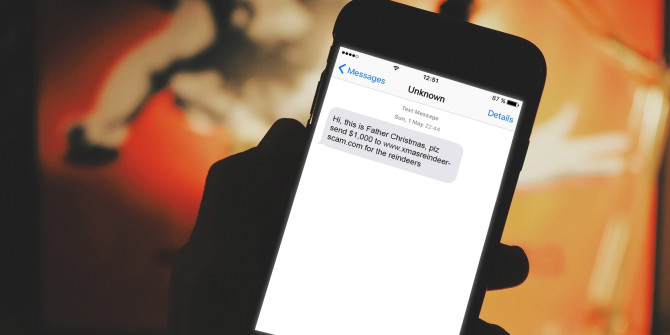Welcome to Cybersecurity in 31 Days. I’m Malan Faya, your host. Today is Day 14. To view previous posts, click here.
Beware of any unsolicited text messages, especially from unknown or suspicious contacts. They may be ‘smishing’ messages.
Smishing is a type of phishing done through mobile phone. Phishing involves the fraudulent act whereby fraudsters send emails under the guise of being genuine sources such as banks to induce unsuspecting receivers of such emails to reveal personal or sensitive information.
Similarly, smishing involves text messages sent to you in an attempt to get you to visit a link or send a confidential or personal data to the sender. The text message may claim to be from your cell-phone provider or financial institution and request your personal information. It may prompt you to click on a link and fill out a form to gain access to to a prize.
Of course, not all unsolicited messages are baits, but be always alert. Unsolicited messages that are sent to you as baits usually come with a tone of urgency. For example, “Because of an upgrade we are carrying out, all ATM cards expire automatically by 20 October 2018. To avoid automatic expiration, text your PIN to this number or call us now’. This is obviously not true. All the person wants is your PIN. NEVER fall for it. Also, many smishing messages contain poor grammar or typographical errors, however insignificant.
So refuse to fall for the bait by simply ignoring them. Do not respond. Also, avoid clicking links, if any is provided. Just ignore the message completely or delete the unsolicited message immediately.


